
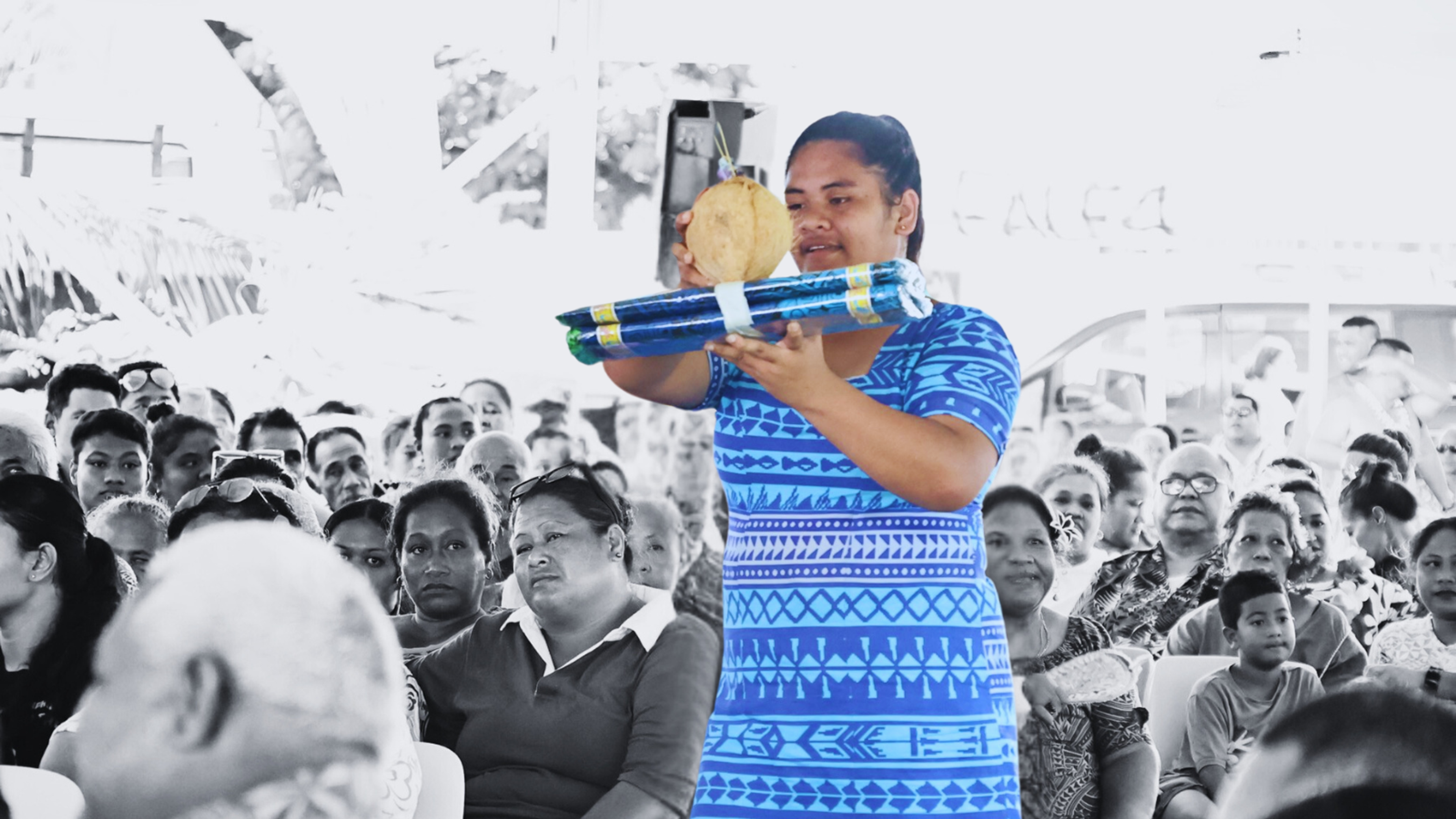
Sāmoan culture is generous and hospitable. Appreciation for guests is shown here, at a HRPP roadshow, with gift-giving.
Photo/HRPP/Facebook
Sāmoa court considers culture, corruption in post-election petitions
Allegations of bribery and treating are again before the courts, spotlighting the challenging intersection of Sāmoan customs and modern electoral law.


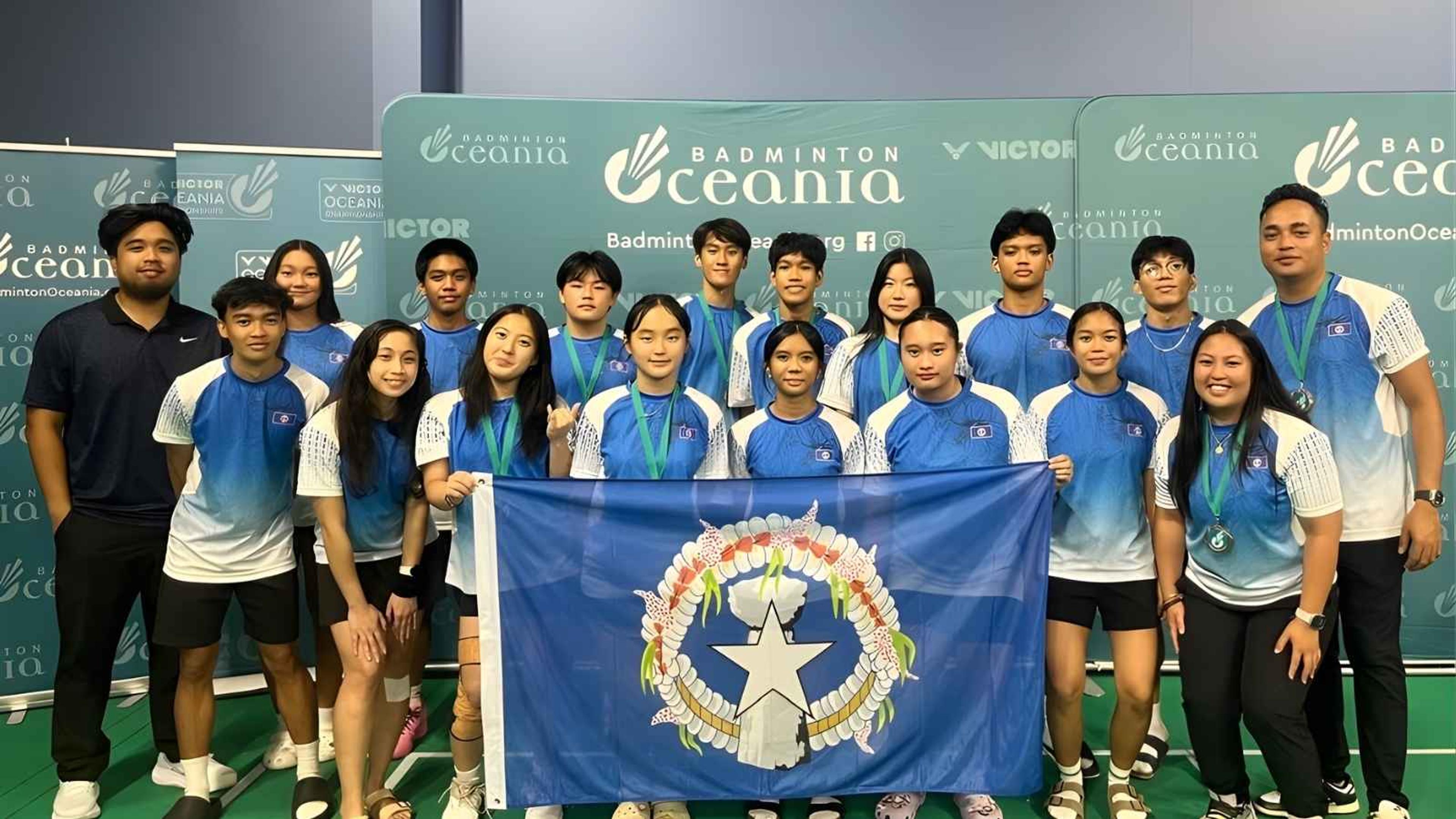
Northern Mariana Islands smash regional barriers with historic Auckland bronze

Sāmoa tightens control of district funds with new seizure powers

Rising costs hit Pacific families hard as interest rate decision nears


Digital Lifeline: New app helps Sāmoans abroad reclaim their heritage

Northern Mariana Islands smash regional barriers with historic Auckland bronze

Sāmoa tightens control of district funds with new seizure powers

Rising costs hit Pacific families hard as interest rate decision nears
Sāmoa’s Electoral Court has been in session throughout October, reviewing petitions and counter-petitions from candidates challenging the results of the country’s snap elections held in August.
Eight petitions were filed in September: four from the Human Rights Protection Party (HRPP), three from the Faatuatua i le Atua Sāmoa ua Tasi (FAST) party, and one from an independent candidate.
For the Savaii seats where FAST won 16 of the 20 seats, petitions were filed for Faasaleleaga II, III, and V. In Upolu, challenges were made for the seats of Aiga i le Tai, Vaimauga II, Safata I, and Falealili I and II.
Out of the original eight petitions, only seven were scheduled for hearings, as the challenge between HRPP candidate Mulipola Leiataualesa Laki and Speaker Auapaau Mulipola Aloitafua from Aiga i le Tai was withdrawn before the hearings began.
Both candidates say they want to uphold unity, and Chief Justice Satiu Simative Perese has described the resolution as a constructive reflection of local consensus.
These petitions, which have become common in Sāmoa’s post-election landscape, mostly allege corrupt practices such as bribery and treating, while referencing cultural practices (aganuu).
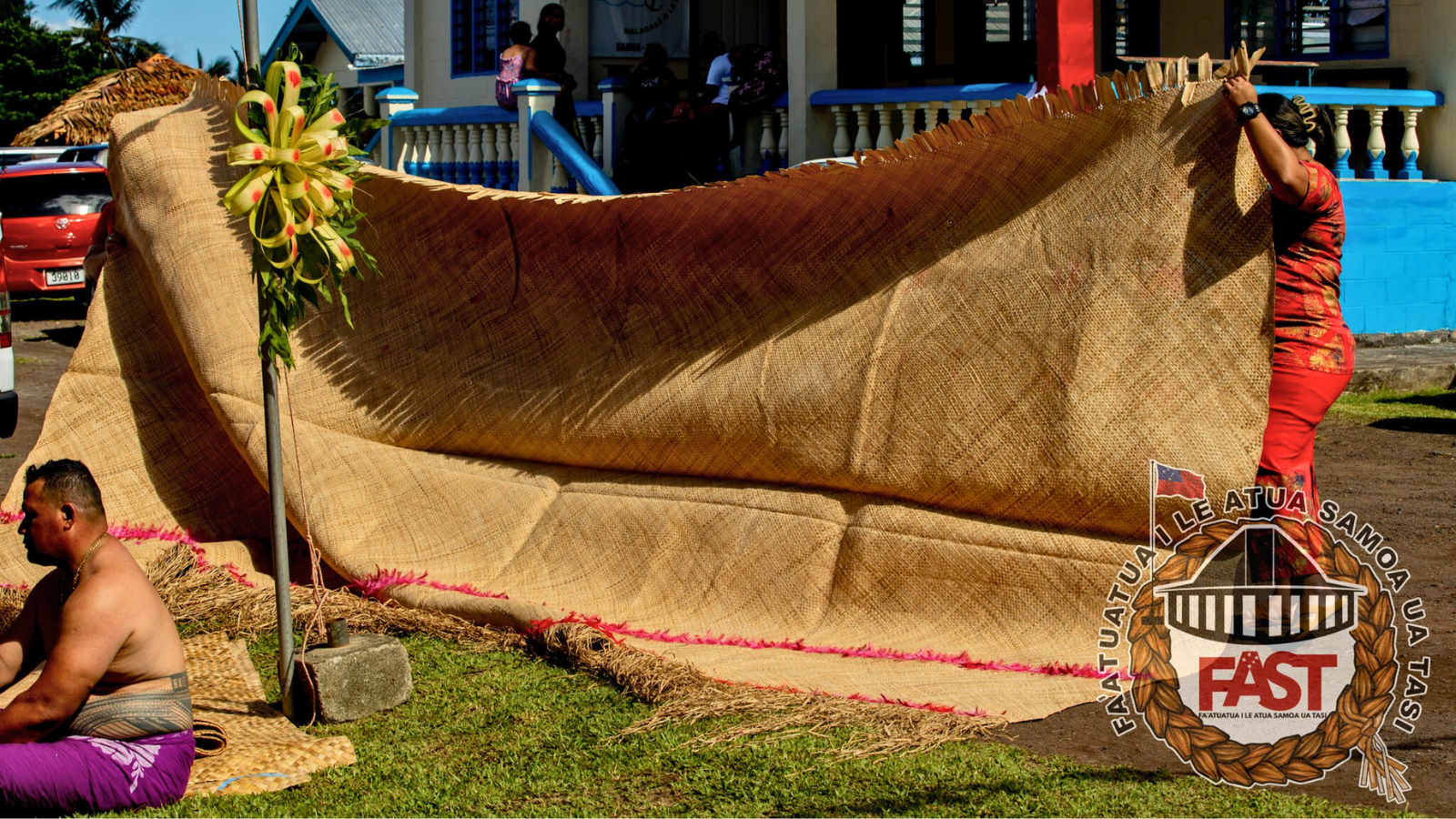
Election roadshow campaigns include cultural practices & gift-giving. Photo/FAST Party/Facebook
Under Sāmoa’s Electoral Act, both bribery and treating are legally defined as corrupt practices. Bribery includes giving or offering money, gifts, or other benefits to influence a vote, while treating involves presenting food, drink, or entertainment before, during, or after an election to sway voters.
Even when framed as gestures of fa‘alavelave or cultural exchange, such actions are deemed unlawful if connected to campaigning or voting behaviour.
In Faasaleleaga V, both the elected FAST MP Vui Iiga Sione Iiga and HRPP challenger Peseta Vaifou Tevagaena withdrew their petitions after reaching an agreement “to promote peace and harmony within their constituency.” Court documents show that their agreement reflected a desire to avoid further division, which the Electoral Court is expected to finalise in the coming weeks.
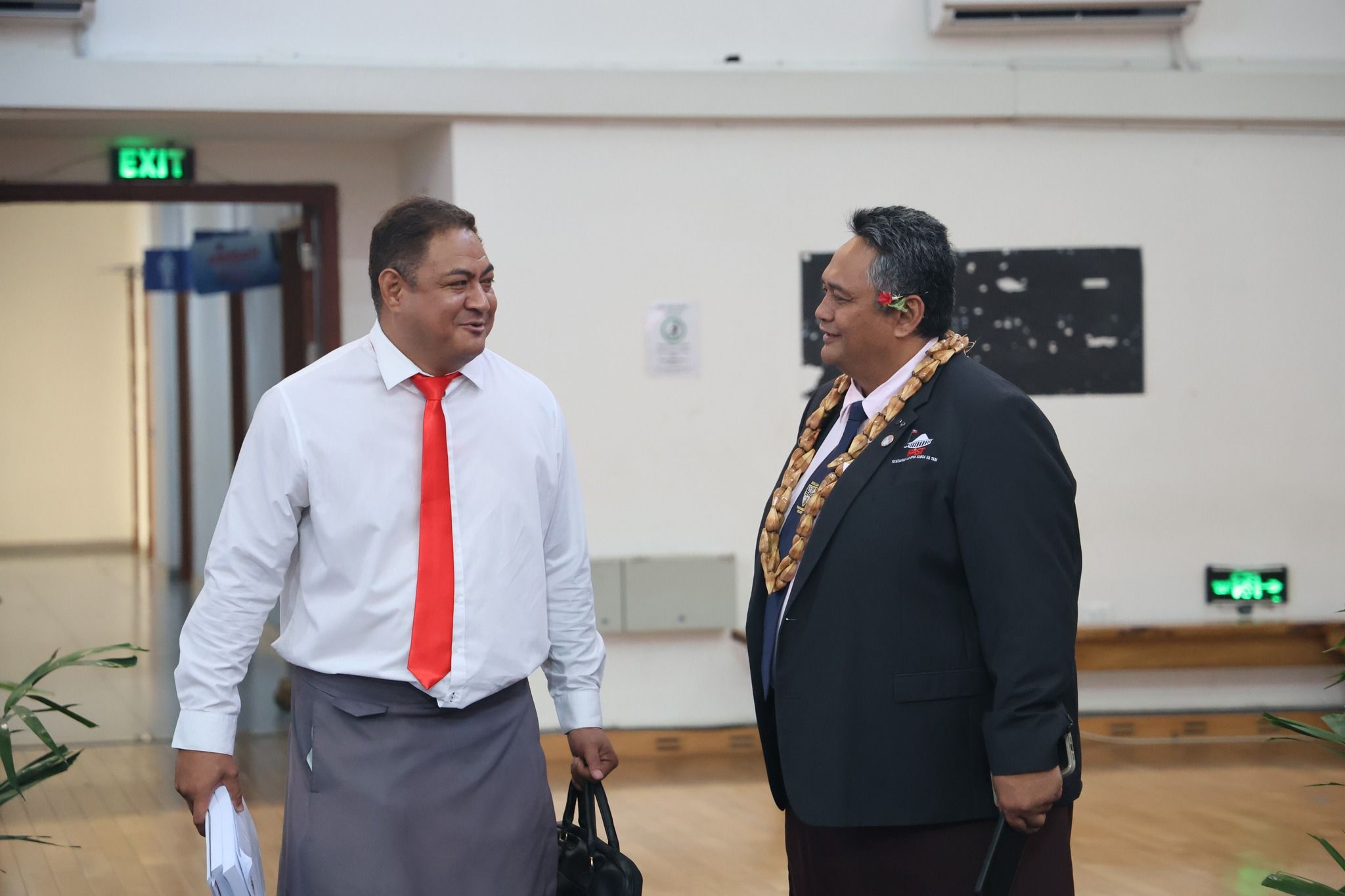
Sāmoa's Deputy PM, to the right, Toelupe Pou Onesemo will have his day in court next week. Photo/Parliament of Samoa/Facebook
Similarly, in Faasaleleaga III, both former Speaker Papalii Lio Masipau and MP Namulauulu Sami Leota withdrew their cases, telling the court that their actions were taken in the “spirit of peace”.
In Upolu, the legal battle intensified last week in Safata I between former HRPP MP Leaana Ronnie Posini and Minister of Environment Anapu Seve Te’i. Leaana's petition included six counts of bribery against Anapu, who countered with 30 charges of bribery and treating.
Testimony given over several days revealed allegations of campaign funds changing hands, with some witnesses claiming they received between ST$100 (NZ$63) and ST$500 (NZ$316) from the cabinet minister. Others alleged that Leaana distributed envelopes containing ST$5000 (NZ$3150) during village meetings.
Under Sāmoan law, both giving and receiving money or gifts to influence a vote are offences. The Electoral Act also limits traditional presentations, such as O‘o and Momoli - the ceremonial gift-giving of newly elected MPs - to within seven days after the official announcement of election results. If these ceremonies or similar gestures occur before or during the campaign period, or are used to sway voters, they are considered corrupt practices.
“I knew it was bribery, but I accepted it,” one witness from Safata is reported as saying. Other villagers spoke of million-dollar promises linked to the Manawanui vessel, which sank off the district’s coast; these promises were allegedly used to win votes.
The law also differentiates between genuine tautua fa‘aauau (continuous service) and new acts of generosity that coincide with elections. The former is considered part of customary village obligations, while the latter may be classified as an electoral offence if it seeks to gain favour.
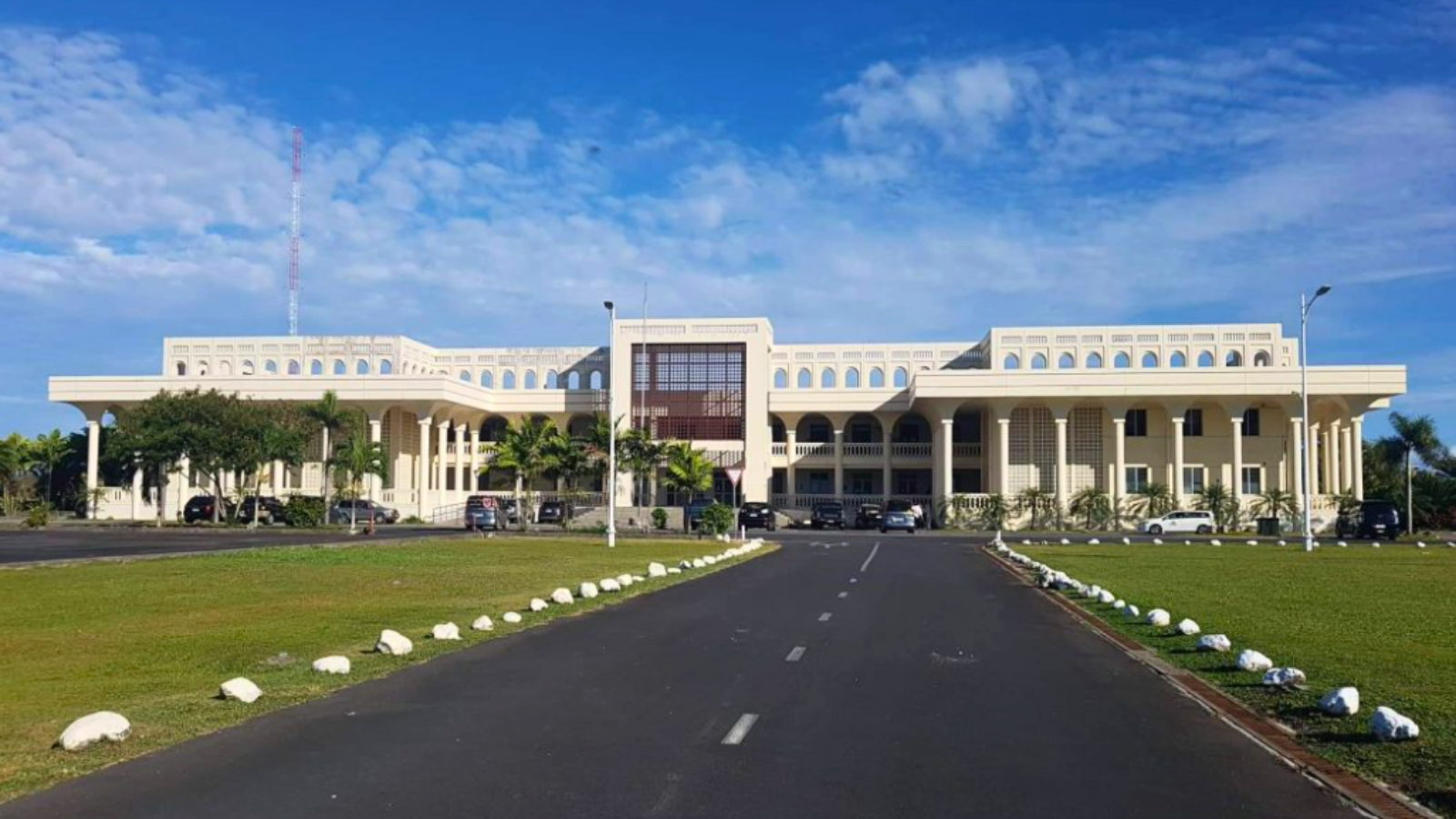
Sāmoa's Courthouse at Mulinuu, the stage for election petitions. Photo/File
In the urban area of Vaimauga II, a procedural challenge was dismissed after the judge ruled that a one-day delay in the newspaper notice did not justify nullifying the case. The seat is currently held by HRPP MP Lenatai Victor Tamapua, whom FAST candidate Tamaleta Taimang Jensen challenged. The latest reports indicate that both petitions have since been withdrawn, with both Lenatai and Tamaleta choosing to resolve their issues outside of court.
As court hearings continue into November, the remaining cases in Falealili and Faasaleleaga move forward. The highly anticipated case between Deputy Prime Minister Toelupe Poumulinuku Onesemo and Tuiloma Laniselota Lameko, who ran with HRPP, is set for next week.
Tuiloma is alleging corrupt practices by the deputy PM, while Toelupe has countered with 102 allegations against Tuiloma and is seeking to disqualify him from any future by-election.